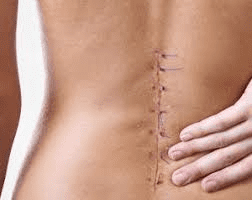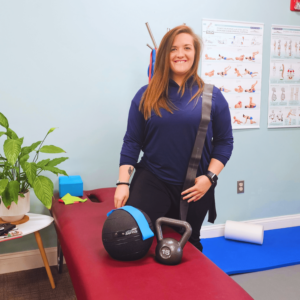Scars are a very common and very unrecognized cause of movement dysfunction and chronic pain.
Your skin, ligaments,tendons, muscles, and fascia are loaded with nerve endings. These nerve endings connect your body and brain, sense movement and potential danger, and generally allow you to know what’s going on in the world around you.
Information from those nerves travel to your brain, which then “decides” how you need to respond. When you feel cold, you shiver to warm yourself up. When you feel sudden pain, you try to get away from it (and maybe say some bad words.) You feel something creepy crawl on you, you jump and scream, etc.
When the skin and its connected fascia and muscles are disrupted due to injury or surgery, the information flow between your brain and that body part is also interrupted. You might develop a “protective” response around the injury, like limping or shifting your weight off of it. You may have decreased sensation like numbness or tingling around the area that your brain then learns to work around. Or the scar tissue is stiff and tight, and doesn’t stretch and move the way it should. Because all of these change the way you move, they cause strain and chronic pain in areas far from the original injury.

These changes can be subtle, but can have significant effects in other parts of the body over time — even decades after the injury. Because old injuries or surgeries are often forgotten (and rarely recognized by many healthcare professionals) it can take some detective work to connect the dots between the old injury and your current symptoms.
Once we identify these connections (or lack thereof!), we use various tools to “reconnect” the damaged neurological connections. We can use manual therapies stretch and mobilize the restricted soft tissues, functional neurology techniques to help your brain “find” the injured area again, and recommend exercises to restore strength and normal movement patterns.
References:
Skin, fascias, and scars: symptoms and systemic connections https://www.ncbi.nlm.nih.gov/pmc/articles/PMC3883554/
Clinical importance of active scars: abnormal scars as a cause of myofascial pain https://www.ncbi.nlm.nih.gov/pubmed/15319762





